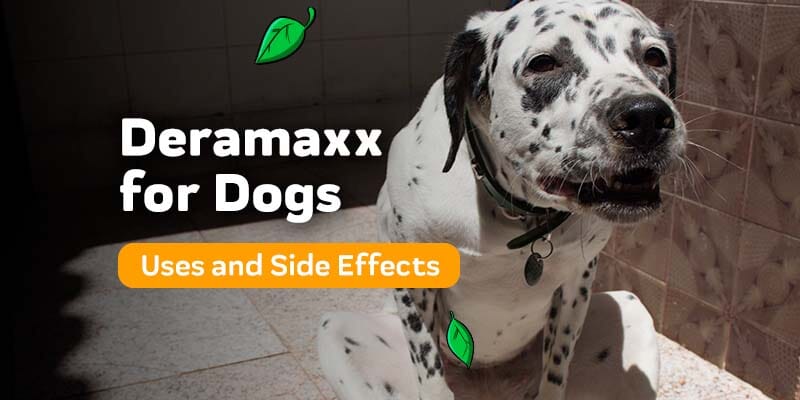If you have ever required medication for either a physical ailment or a mental illness, then you are probably very familiar with just how difficult it can be to find the right medication for your situation. While accredited doctors and psychiatrists are well-versed in the world of medicine, everyone's brains and bodies are so different that it's incredibly hard to know that a medication will be the right one for the given situation.
Take antidepressants, for example. There is a specific type of antidepressant known as an SSRI and they are known for the way they reuptake excess amounts of serotonin in the brain. They are literally intended to eliminate symptoms of depression, and eventually, they are used by people seeking relief from depression altogether. But the wildest truth is that SSRIs do not work the same for everyone, and some people end up becoming more depressed as a result of SSRIs.
All of this information is known to us because people have personally reported how they feel while under the influence of various medications, and even so, finding the right medication for someone is still difficult. So if it's a process for human beings to discover the medicine that will help them, just imagine how much more exhaustive and intense it is to medicate animals. They cannot verbally report back to us and let us know how they feel as a result of a certain medicine. Instead, it becomes an even more in-depth process of trial and error until your cat finds relief from their misery and undesirable side effects.
You want to be cautious and well-informed about medications in all cases, but this is especially important when you are dealing with cats. They trust you with everything, and you will need to make decisions for your cats when their health is struggling. With the advice of your cat's veterinarian in mind, it is essential to gather as much information as possible before you start them on a medication intended to help them feel better. This is especially true for Prednisolone.
Prednisolone cats require the help of this medication because they are suffering from debilitating allergies. Prednisolone for cats is also used for the treatment of inflammation.
Prednisone for cats is proven to work well and effectively help cats, but it doesn’t help cats without causing potential harm as well. Before siding with the vet and the suggestion that your cat is put on Prednisone, it’s wise for you to do your research and figure out if this is the right route for your cat.

What You Need to Know about Prednisolone
Prednisolone works by suppressing the impulsive reactions of the inflammatory response in your cat's body. Rather than letting the body's neurons rush to the scene of the injury and cause inflammation as a way of trying to heal the issue at hand, corticosteroids like Prednisolone for cats are commonly prescribed to stop the body from reacting to certain variables. Since Prednisone packs quite a punch, the medication is only available when prescribed by your cat’s veterinarian.
The medicine is classified as a corticosteroid, meaning that it contains steroid hormones that are actually already part of the body by nature. The medicine itself does not include natural corticosteroids, but rather, the medication is intentionally designed to mimic the corticosteroids already in the adrenal glands of vertebrates.
Corticosteroids are derived from the adrenal cortex and they target both the glucocorticoid receptors and mineralocorticoid receptors. In layman's terms, corticosteroids relieve parts of the body that are irritated and inflamed. The swelling goes down, allergy symptoms subside, and any red patches that resulted from the irritation are alleviated by corticosteroids. Other conditions like joint problems as a result of arthritis and the abundance of symptoms that skin conditions cause.
How Prednisolone Differs from Prednisone
You might have noticed that the words Prednisolone and Prednisone have been used interchangeably. Believe it or not, this is not a typo, but instead, it is a way of referring to the same medication in two different ways. Although both Prednisolone and Prednisone are used for the same purpose, the two versions of the same corticosteroid react differently in the body.
Let’s talk about how that is possible! Prednisolone is a form of Prednisone, and it is metabolized, meaning it is far easier for your cat's body to adjust and take well to the medication. Introducing the Prednisone version of this corticosteroid medication to a cat that has a not-so-healthy liver will not go over very well, so that's where Prednisolone comes into play.
Prednisolone for cats is easier on the body and it is the best foot to start out on if you're worried about Prednisone hurting your cat's internal functioning. It is the safer route to take if your cat has ever experienced health issues concerning the liver, so be sure to discuss the harm of Prednisone for cats with liver problems. Talking it out with your cat’s vet will inform you even more about the specific dangers of Prednisone for cats, as well as how Prednisolone for cats might be the best choice for your kitty cat.
What is Prednisolone Used For?
So far, we have mentioned that Prednisolone for cats is primarily used in instances where your cat needs help with inflammation and persistent allergies. But Prednisolone does not stop there. It can also be used for suppressing the immune system during operations involving organ transplants.
As an immunosuppressant, Prednisone for cats makes it more likely that the cat's body will readily accept and take to the transplant. Similarly, Prednisolone helps in circumstances where a cat's adrenal glands do not produce enough steroid hormones in order for everything to function as it should. Prednisolone is already part of the concentration of hormones already found in your cat’s adrenal glands, so the medication is a way of supplementing or making up for a lack of hormones.
Some common conditions treated with Prednisolone include:
- Cushing's disease
- Feline asthma
- Systemic fungal infections
- Urinary tract infections
- Viral infections
- Inflammatory bowel disease
- Autoimmune diseases
- Immune mediated disease
- Kidney disease
- Allergic reactions
- Cancer
How to Give Prednisolone to Your Cat
Since Prednisolone has such intense list of potential side effects, it is utterly important that you adhere to the dose that your cat's veterinarian prescribes for your feline. Breed, height, weight, and severity of conditions are a handful of factors that your pet's vet will take into consideration when deciding on the appropriate amount of medicine you should give your cat. This comes into play when it comes time to administer Prednisone to your kitty cat. If it makes you more comfortable, you should ask your vet to either model the appropriate way of giving Prednisone to cats, or at the very least consider administering Prednisone to your cat at a vet appointment so the professionals can give you feedback on how you're doing. It is better to learn correctly the first time than to have to unlearn bad habits. Another important tip to make note of is that you'll want to give Prednisone to your cat at the same time every single day.
This can be in the morning right after you wake up, at lunchtime every day, or at a set time in the evening. Since it is advised that you administer Prednisone with food, the time of day that you administer the medicine to your cat will definitely depend on when your cat usually eats his or her meals. Food and water should be readily available for your cat to eat and drink after getting their daily dose of Prednisone. The medication sometimes causes very uncomfortable symptoms, like nausea and vomiting, immediately after being consumed, so we want to help you find ways to keep the cat's nausea at bay.
Food is always good because it gives the stomach something to digest with the medicine, rather than just having strong steroid hormones in your pet's body without anything to cushion the intensity. If you ever miss a dose of Prednisolone for your cat, don't be too hard on yourself. Just try to prevent it from happening again. Setting an alarm to ring at the same time every day of the week is a great step in helping you avoid any slip-ups, but don't try to overcompensate for the missed dose by doubling the dose the next day.
You never want to give your cat more Prednisolone than they are supposed to take at one time, so just move forward and be proactive about not forgetting a dose in the future. Also, since Prednisone is so powerful, your cat needs to slowly be weaned off of the medication. If you immediately stop giving Prednisolone to your cat without any tapering off, it will confuse your cat's body.
Stopping suddenly will likely cause minor withdrawal symptoms because the body is so used to receiving something in large quantities but it's no longer getting what's expected. You don't want to play with your cat's natural balance of hormones, so stick to the plan that your veterinarian makes when taking your cat off Prednisolone.
Adverse Symptoms and Negative Side Effects of Feline Prednisolone
Prednisolone is a medication that starts to have a higher propensity for adverse side effects the longer your cat is on the medication. It is likely that your cat will, at some point, stop feeling the benefits of Prednisolone as well as they did when they first started taking the medication. They may require higher doses to feel the same immune response.
This is not unique to Prednisolone. A lot of medications become tolerated by the body at a certain point, and since the body’s tolerance has reached a certain threshold, the medicine is not having the same effects anymore. If your cat still requires Prednisolone for allergies or inflammation, your cat’s veterinarian may prescribe a higher dose of the medication.
But before you blindly follow the prescriptions that your feline’s vet says are best, you should learn more about the short-term and in cats' behavior.
Known Drug Interactions for Prednisone and Prednisolone
Extreme caution must be taken when you consider giving your cats prednisone or prednisolone. There are some drug interactions your vet will check for. Common medications that might cause adverse effects include:
- Diuretics
- Aspirin
- Anticholinesterase medications
- Erythromycin
- Rifampin
Is Prednisone and Prednisolone FDA Approved for Cats?
Prednisone and prednisolone are FDA approved for cats.
Short-Term Effects that Prednisolone Causes
Most of the time, the short-term effects of Prednisolone for cats just appear at the start of your cat’s Prednisolone treatment. They should go away shortly after your cat is tapered off of the medicine, but your cat is likely to endure these side effects for as long as your cat has Prednisolone in its system.
Sometimes, these side effects stay present and persistent despite the fact that your cat is not on Prednisolone anymore. If this is the case for your cat, we highly recommend that you discuss the circumstances with your cat’s vet immediately. It is not necessarily normal for the side effects to stick around, so there might be something more serious going on in your cat’s system, and you’ll want to have that checked out sooner than later. Proactivity is key!
A lot of cats do not stay on Prednisolone for their entire lifetime. It is very common for a veterinarian to prescribe Prednisone as a way of relieving your cat of their allergy symptoms while you figure out what’s causing the allergies in the first place. Once the allergen is identified, your cat’s vet might start to
These short-term symptoms include:
- Weakened immune system
- Greater possibility of having infections
- Hungrier than normal
- Heightened thirst levels
- The feeling of needing to urinate more often than usual

Possible Long-Term Effects Resulting from Prednisolone
Just as there are side effects that only last while your cat is taking the medication, there are also certain behaviors and changes that can stick with cats for the rest of their lives as a result of taking Prednisolone. In high doses, Prednisone can be very hard on the body of your cat, especially when it is taken continuously for months or even years.
The longer your cat is taking Prednisolone, the higher the risk that these long-term side effects will come to light.
These particular side effects include:
- Aggressive behavior
- Upset stomach
- Ulcers in the stomach and digestive tract
- Nausea and vomiting
- Difficulty using the bathroom
- Greater chance of getting infections
- Constipation and/or diarrhea
- Exhaustion
- Low energy levels
- Cushing’s Disease diagnosis
The short-term effects of Prednisone are likely to appear alongside these long-term side effects, too. But the short-term effects will feel more significant and uncomfortable when the dose your pet takes for their allergies is high. So, as you can imagine, Prednisolone is not the easiest medication for your cat to take if they end up experiencing the possible side effects of Prednisone.
These short-term and long-term effects of Prednisolone are to be expected, and although they are unfortunate for your cat, they are known and not abnormal. But not every side effect resulting from Prednisolone is worth taking with a grain of salt. There are a few side effects of the medication that require immediate attention, and if you notice any of the following symptoms affecting your cat, please do not hesitate to take your cat to an emergency care center.
These side effects are very serious and they require immediate medical attention:
- Swollen lips
- Clogged airways
- Inability to breathe through the nose
- Hives on any part of the body
- Unexplainable weight gain
- Spikes in blood pressure levels
- Changes in behavior, such as withdrawing
Alternative Ways to Manage Inflammation
Before you ask your veterinarian to refill your cat's next dose, consider alternative ways to help your cat's immune system's response. This includes herbal therapies and CBD oil. Other products have been shown to reduce inflammation instead or in addition to oral steroids.
Cannabidiol as an Alternative to Prednisolone for Cats
As mentioned, Prednisolone is a medication that causes greater levels of thirst, hunger, appetite, breathing, and likelihood of coming down with an infection or illness. These are temporary symptoms of the medicine that present themselves at the very early stages of Prednisolone use.
CBD can help diminish the intensity of a few of these side effects, but where cannabidiol is the most beneficial is in situations where the long-term negative effects of Prednisolone take over. To reiterate, the unfortunate side effects that appear after consistent and repeated use of Prednisolone include nausea, vomiting, stomach ulcers, pain in the limbs, aggressive behavior, exhaustion, and overall discomfort.
CBD is universally known as being a natural alternative for pain relief. Cannabis as a whole has been a pain reliever for centuries now. Discovered for its health benefits in 2900 BC, cannabis plants are an herbal remedy for a plethora of health issues that people and pets alike face throughout their lives. The only cannabinoid that is safe for pets is cannabidiol, or CBD, but for a very long time now, people have been making use of the entire marijuana plant for their own health reasons.
CBD can eradicate the negative side effects of Prednisolone. By pairing the steroid hormone with cannabidiol, you can make the treatment process so much easier for your cat. CBD oil alleviates a lot of the unfortunate side effects that Prednisone causes, so the two of them pair very well together.
How to Buy CBD for Felines

Cats that are taking Prednisolone for allergies and associated inflammation benefit more from CBD than you could possibly imagine. From chewy snacks and CBD oil, to hemp-based CBD and cannabidiol mobility supplements, the world of cannabis can work wonders for your cats as they take Prednisone to heal from allergies. Innovet tailors their CBD products to cats just like yours, and the team knows how important your little feline friend is to you. Innovet treats your pets like their very own, so you can always trust that your pet CBD is as pure and safe as they come! Check out Innovet today to learn more about how CBD can help Prednisone cats.
Sources:
PrednisolonePrednisone and Prednisolone for Dogs and Cats
Therapy for feline allergic dermatitis
Use of adjunctive prednisolone in the management of a cat with bilateral quadriceps contracture following trauma
Steroid Treatment

Thanks for stopping by!
P.S. We Love You!
Sincerely,
The Innovet Team
Please do not ask for emergency or specific medical questions about your pets in the comments. Innovet Pet Products is unable to provide you with specific medical advice or counseling. A detailed physical exam, patient history, and an established veterinarian are required to provide specific medical advice. If you are worried that your pet requires emergency attention or if you have specific medical questions related to your pet’s current or chronic health conditions, please contact or visit your local/preferred veterinarian, an animal-specific poison control hotline, or your local emergency veterinary care center.
Please share your experiences and stories, your opinions and feedback about this blog, or what you've learned that you'd like to share with others.


















